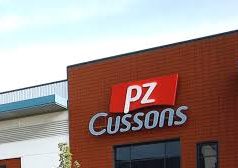As the Federal Government seeks to attract foreign investment into Nigeria’s pharmaceutical sector, industry stakeholders are calling for urgent measures to address the challenges faced by local pharmaceutical manufacturers. High tariffs, regulatory bottlenecks, and operational costs are stifling the growth of domestic producers, prompting experts to emphasize the need for an enabling business environment to ensure the sector’s sustainability and competitiveness.
Stakeholders in Nigeria’s pharmaceutical industry have urged the Federal Government to prioritize easing the challenges faced by local manufacturers, including a harsh trade and regulatory environment, as it works to attract foreign investment into the sector. The call comes amid efforts by the government to boost pharmaceutical manufacturing, including plans to bring a foreign healthcare manufacturer into the country.
Former President of the Pharmaceutical Society of Nigeria (PSN), Olumide Akintayo, emphasized the importance of creating an enabling environment for local manufacturers to thrive. In a telephone interview, Akintayo stated that the government’s primary responsibility is to ensure the security and well-being of its citizens, which includes fostering a conducive business environment for all sectors, including pharmaceuticals.
Akintayo’s remarks follow a disclosure by the Federal Minister of Industry, Trade and Investment, Dr. Jumoke Oduwole, at the World Economic Forum in Davos, that she is collaborating with the Minister of Health, Muhammad Pate, to attract a foreign healthcare manufacturer to Nigeria. While acknowledging the potential benefits of foreign investment, Akintayo stressed that local manufacturers must not be overlooked or burdened with excessive tariffs and high operational costs.
He pointed to the presence of foreign pharmaceutical companies, such as Jawa Pharmaceuticals, as evidence of the sector’s potential. However, Akintayo argued that empowering local manufacturers would bring greater economic benefits, including job creation and the establishment of Nigeria as a regional pharmaceutical hub.
The pharmacist also questioned the effectiveness of President Bola Tinubu’s executive order, signed in June 2024, which waived duty payments on the importation of certain pharmaceutical inputs. Akintayo noted that the order has yet to yield significant improvements, as drug prices remain high and local manufacturers continue to face challenges at ports, including excessive tariffs and exorbitant registration fees.
Akintayo highlighted the need for Nigeria to leverage its agricultural resources, such as cassava and yam, to produce pharmaceutical-grade excipients locally. He lamented the country’s reliance on imported excipients despite being a leading producer of raw materials like cassava starch.
The former PSN president also criticized regulatory agencies for prioritizing internally generated revenue (IGR) over public health. He cited instances where new policies forced pharmaceutical companies to change product labels, leading to additional costs that further strained local manufacturers.
Echoing Akintayo’s concerns, the President of the Lagos Chamber of Commerce and Industry (LCCI), Gabriel Idahosa, called for the urgent implementation of the pharmaceutical inputs duty-free waiver. Idahosa attributed the delay to poor coordination among government agencies, particularly between the Central Bank of Nigeria and commercial banks.
Idahosa also clarified misconceptions about the departure of multinational pharmaceutical companies from Nigeria, noting that their factories remain operational within the country. He emphasized the need for Nigeria to embark on a comprehensive medical industrialisation programme to meet domestic and regional medical needs, including vaccine production.
Both stakeholders agreed that while foreign investment is welcome, addressing the challenges faced by local manufacturers is critical to sustaining the pharmaceutical sector. They called for a balanced approach that supports domestic producers while attracting foreign investors, ensuring that Nigeria becomes a hub for pharmaceutical production in West Africa.
The call by stakeholders for the Federal Government to prioritize the needs of local pharmaceutical manufacturers underscores the importance of creating a balanced and sustainable pharmaceutical sector. By addressing challenges such as high tariffs, regulatory bottlenecks, and operational costs, the government can empower domestic producers while attracting foreign investment. This dual approach will not only strengthen Nigeria’s pharmaceutical industry but also position the country as a regional leader in medical production, ensuring access to affordable and quality healthcare for its citizens.
Follow us on Instagram.
https://www.instagram.com/businessnewsng?igsh=ZXpweTdjOGF1ZXdu

























